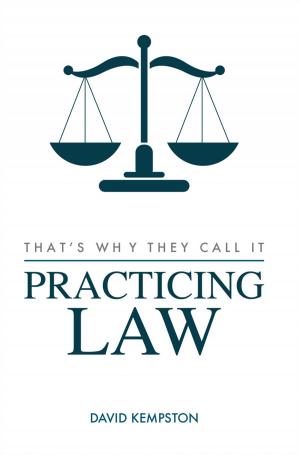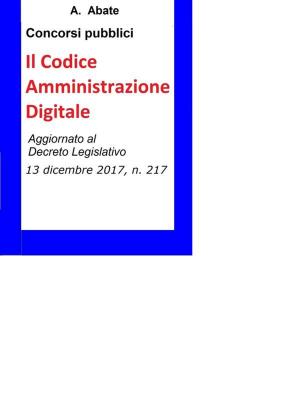Transparency in Philanthropy: An Analysis of Accountability, Fallacy, and Volunteerism
Nonfiction, Reference & Language, Law, Estates & Trusts, Practical Guides| Author: | John Tyler | ISBN: | 9780985126582 |
| Publisher: | Philanthropy Roundtable | Publication: | March 20, 2013 |
| Imprint: | Smashwords Edition | Language: | English |
| Author: | John Tyler |
| ISBN: | 9780985126582 |
| Publisher: | Philanthropy Roundtable |
| Publication: | March 20, 2013 |
| Imprint: | Smashwords Edition |
| Language: | English |
Recent calls for more transparency in private philanthropy have increased the need for philanthropic organizations to carefully plan and think about what information they will release to the public and how they will do it. To help organizations answer these questions, The Philanthropy Roundtable has published a new book by noted legal scholar John Tyler, general counsel of the Ewing Marion Kauffman Foundation, titled Transparency in Philanthropy: An Analysis of Accountability, Fallacy, and Volunteerism.
Philanthropic organizations are obligated to provide certain types of transparency—the types that are required by the federal tax system and by state laws aimed at maintaining the donor’s intent. But current heightened calls for more transparency are based on other rationales: Transparency is a good unto itself and more should be required of all institutions; more transparency is needed to further ensure that philanthropy serves “public purposes”; more transparency will counteract the “power asymmetry” between foundations and grantees; and more transparency is necessary to evaluate philanthropic effectiveness. In this book Tyler argues that none of these rationales justifies additional legally imposed philanthropic transparency, which is what advocates demand.
Even though there is not much of a legal argument for requiring more philanthropic transparency, there are good arguments for organizations being transparent on a voluntary basis. This would be not a wholesale disclosure of information but measured transparency, undertaken in light of a foundation’s mission and the potential costs that would go along with that disclosure. John Tyler’s intent in Transparency in Philanthropy is to encourage philanthropies and nonprofits to plan their transparency strategy and to do so carefully and thoughtfully.
“With increased calls for more transparency from philanthropic organizations, this book is a useful and timely resource to help organizations create and navigate their plans for transparency,” said Adam Meyerson, president of The Philanthropy Roundtable. “Every philanthropic organization should read this book and think about what might be worthy of consideration moving ahead in a world dominated by a growing appetite for information.”
In an accompanying companion guide, Tyler poses questions to the reader that help an organization create a checklist of issues to consider when making their transparency plans.
These questions include:
• What kind of organization are you? What is your mission? How large is your board and who is on it?
• How can your foundation benefit from disclosing more information? Do you feel a need to cultivate a better understanding of your activities in your community?
• What costs and risks will you incur in disclosing more information? How much time and money can your organization devote to disclosing information to the public? Could the information unfairly harm the reputations of your grantees?
• What benefits and costs do tools like an annual report, a full website with social media and other tools pose for publicizing information?
Recent calls for more transparency in private philanthropy have increased the need for philanthropic organizations to carefully plan and think about what information they will release to the public and how they will do it. To help organizations answer these questions, The Philanthropy Roundtable has published a new book by noted legal scholar John Tyler, general counsel of the Ewing Marion Kauffman Foundation, titled Transparency in Philanthropy: An Analysis of Accountability, Fallacy, and Volunteerism.
Philanthropic organizations are obligated to provide certain types of transparency—the types that are required by the federal tax system and by state laws aimed at maintaining the donor’s intent. But current heightened calls for more transparency are based on other rationales: Transparency is a good unto itself and more should be required of all institutions; more transparency is needed to further ensure that philanthropy serves “public purposes”; more transparency will counteract the “power asymmetry” between foundations and grantees; and more transparency is necessary to evaluate philanthropic effectiveness. In this book Tyler argues that none of these rationales justifies additional legally imposed philanthropic transparency, which is what advocates demand.
Even though there is not much of a legal argument for requiring more philanthropic transparency, there are good arguments for organizations being transparent on a voluntary basis. This would be not a wholesale disclosure of information but measured transparency, undertaken in light of a foundation’s mission and the potential costs that would go along with that disclosure. John Tyler’s intent in Transparency in Philanthropy is to encourage philanthropies and nonprofits to plan their transparency strategy and to do so carefully and thoughtfully.
“With increased calls for more transparency from philanthropic organizations, this book is a useful and timely resource to help organizations create and navigate their plans for transparency,” said Adam Meyerson, president of The Philanthropy Roundtable. “Every philanthropic organization should read this book and think about what might be worthy of consideration moving ahead in a world dominated by a growing appetite for information.”
In an accompanying companion guide, Tyler poses questions to the reader that help an organization create a checklist of issues to consider when making their transparency plans.
These questions include:
• What kind of organization are you? What is your mission? How large is your board and who is on it?
• How can your foundation benefit from disclosing more information? Do you feel a need to cultivate a better understanding of your activities in your community?
• What costs and risks will you incur in disclosing more information? How much time and money can your organization devote to disclosing information to the public? Could the information unfairly harm the reputations of your grantees?
• What benefits and costs do tools like an annual report, a full website with social media and other tools pose for publicizing information?















